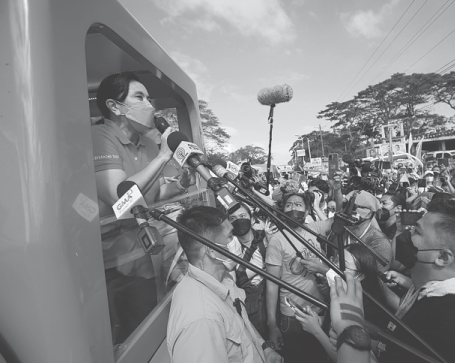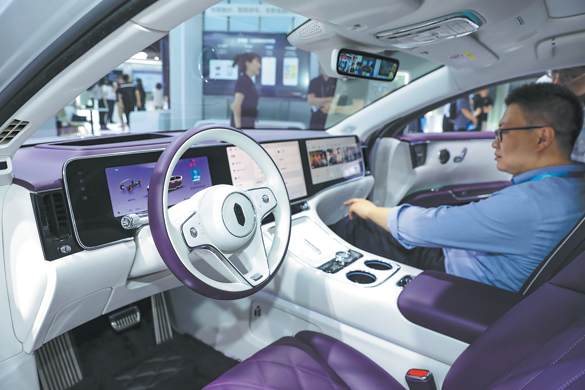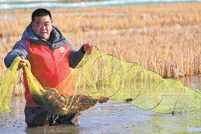Poll campaigns kick off in Philippines

MANILA-Campaigns began on Tuesday for an election in the Philippines that will result in a new president to lead the country over the next six years.
At least 67.5 million Filipinos have registered to vote in the election on May 9, including 1.8 million voters overseas. They will also elect the vice-president, about 300 lawmakers, and more than 18,000 officials for local positions. Tuesday marked the official start to the campaign, though candidates have been on the hustings for months.
There are 10 presidential candidates and nine candidates for vice-president. According to surveys, Ferdinand Marcos Jr, 64, the son of former leader Ferdinand Marcos, is leading in the opinion polls. Marcos Jr has served as vice-governor and governor of the northern province of Ilocos Norte, as well as terms as a congressman and senator.
Trailing him are 56-year-old incumbent Vice-President Maria Leonor Robredo, Manila City Mayor Francisco Domagoso, Senator Manny Pacquiao, Senator Panfilo Lacson and five others.
In the Philippines, the president and vice-president are elected separately. Davao City Mayor Sara Duterte-Carpio, 43, daughter of President Rodrigo Duterte, will run for vice-president as the running mate of Marcos Jr.
Duterte, whose six-year term ends in June, has yet to endorse any presidential candidates.
As in past elections, some candidates started campaigning on television, social media, and radio months before the campaign season started.
As early as October, presidential aspirants begun crisscrossing the archipelago to dole out goodies and cash, launch TV promotions and roll out social media advertising programs. The candidates' names and pictures are displayed on giant billboards along major highways.
Pandemic restrictions
However, unlike in the past, the candidates are not expected to barnstorm cities and towns, croon love songs, hug babies, and dance on stage to win votes.
The Commission on Elections has imposed restrictions in order to contain the spread of COVID-19, barring politicians from entering houses, crowding, handshakes, hugs, kissing, or any action that involves physical contact.
Even taking selfies and photographs, activities that require proximity with people, are prohibited.
With the COVID-19 threat, the candidates are expected to be more prominent on digital platforms and hire social media savvy advisers to woo young people, who comprise more than half the registered voters.
The crescendo of campaign rhetoric and mudslinging is also expected to intensify in the coming days as the three-month campaign unfolds.
Commenting on social media's role in the campaign, Marie Fatima Gaw, a communications research professor at the University of the Philippines, said social media had become "hyper partisan", with hidden political content everywhere and insufficient blocking of inauthentic material.
"The significance of social media now has been exponential," she said.
Xinhua - Agencies

Today's Top News
- China-Cambodia-Thailand foreign ministers' meeting held, press communique issued
- Drills demonstrate China's resolve to defend sovereignty against external interference
- Trump says 'a lot closer' to Ukraine peace deal
- China pilots L3 vehicles on roads
- PLA conducts 'Justice Mission 2025' drills around Taiwan
- Partnership becomes pressure for Europe






























